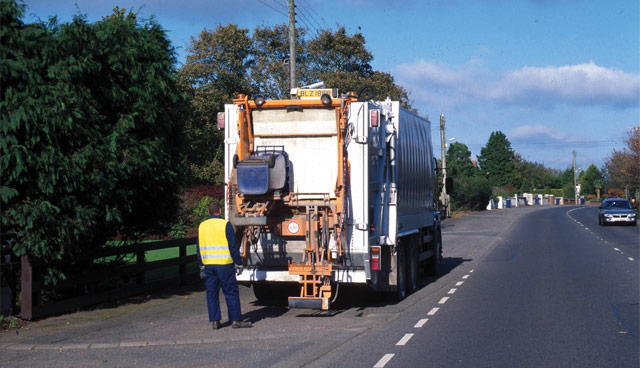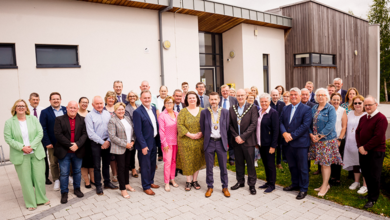Transforming local government services

Digital service transformation has been a key focus of local authorities across Northern Ireland with many now seeking to build on significant customer-focussed progress.
Highlighting that digital transformation is an ongoing process, Stephen Walls, Head of ICT at Mid and East Antrim Borough Council points to four key foundation themes used by the Council in building digital transformation into their future corporate planning.
These entailed:
- digital services — access to all citizen services from anywhere at any time on any device;
- digital workforce — a digitally literate workforce shift; a culture of innovation and the provision and consumption of shared services;
- digital information — evidence-based decision making and information management and compliance; and
- digital foundations — reliable, resilient, digitally inclusive infrastructure and services supported by trained staff with specialisms.
Underpinning their digital ambitions, says Walls, was good governance. With a move to embrace digital transformation he points to an early decision to redesign the IT team, creating a team dedicated to digital transformation, which worked alongside a team focussed on core IT.
As well as onsiding the operational management team of the Council, with them adopting a focus on digital transformation, the Council created a transformation board with oversight on three key pillars of improvement and efficiency, digital transformation and service review.
By including digital service transformation ambitions within the first year of the Council’s performance improvement plan, Walls says that the Council intentionally increased their accountability to the citizens of the borough. Similarly, digital transformation reports and updates go before the Audit and Scrutiny Committee for accountability to elected members.
In 2018/19, the Council initiated 39 digital projects across all services, 23 of which have been completed with 16 ongoing.
Key deliveries have included online services for waste management, leisure centres and building control. As well as a shared environmental service, digitisation of procurement processes and playpark assessment software.
Waste
A good example of the progress of digitisation lies in the area of waste. As one of the Council’s largest responsibilities, digitisation of this area was key to driving efficiencies. The vision incorporates AI and GIS and uses root optimisation for real time delivery and monitoring.
“This has been a true redesign of a service delivery and support mechanism focussed on the citizen and not on the legacy and existing services,” says Walls.
In offering a one-stop-shop for citizen engagement, delivering improved service transparency and efficiency, Walls highlights how the Council has witnessed a 70 per cent reduction in general email enquiries through the introduction of a self-service portal for requests and payments. The Council currently processes 126 average requests per day via their helpdesk, including an out of hours service and has been able to recognise a 20 per cent increase in agent productivity, with marked improvement in call waiting, duplication and repeat requests.
Walls emphasises the importance of good governance and benchmarking in the success to date of the service transformation. Including direct links to corporate performance and the alignment of KPIs to staff performance and customer satisfaction.
Service redesign, he states, has helped create a digitally literate workforce in the area of waste. The Council has 30 mobile device users delivering frontline waste operations to 56,000 householders, 800 customers and over 200 council facilities. This has brought about a 77 per cent reduction in response times for bulky collections and a reduction from 5 days to 1.5 days in response time for bin deliveries.
Speaking about the future proofing of the service, Walls says that the transformation was built to incorporate best practice scoping to maximise system capacity for waste operations and facilities management. And, while the new system empowers citizens and customers through self service tools as first preference, an omnichannel promise still exists to ensure that citizens are not inadvertently disconnected.
Walls says that the Council aims to see the lessons learned from the transformation of waste services replicated and spread across other services. This will involve carrying over best practice to their future scheduled projects with the vision to develop a future culture where dashboard reporting and real time decision making are the norm.






